Keynote Speakers:
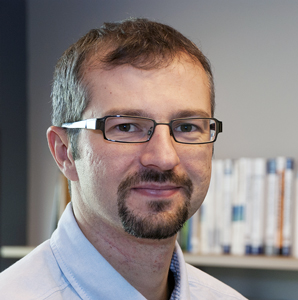 Dr. Paris Avgeriou is Professor of Software Engineering in the Department of Mathematics and Computing Science, University of Groningen, the Netherlands where he has led the Software Engineering research group since September 2006. Before joining Groningen, he was a post-doctoral Fellow of the European Research Consortium for Informatics and Mathematics (ERCIM). He has participated in a number of national and European research projects directly related to the European industry of Software-intensive systems. He has co-organized several international conferences and workshops (mainly at the International Conference on Software Engineering - ICSE). He sits on the editorial board of Springer Transactions on Pattern Languages of Programming (TPLOP). He has edited special issues in IEEE Software, Elsevier Journal of Systems and Software and Springer TPLOP. He has published more than 110 peer-reviewed articles in international journals, conference proceedings and books. His research interests lie in the area of software architecture, with strong emphasis on architecture modeling, knowledge, evolution, patterns and link to requirements. He champions the evidence-based paradigm in Software Engineering research.
Dr. Paris Avgeriou is Professor of Software Engineering in the Department of Mathematics and Computing Science, University of Groningen, the Netherlands where he has led the Software Engineering research group since September 2006. Before joining Groningen, he was a post-doctoral Fellow of the European Research Consortium for Informatics and Mathematics (ERCIM). He has participated in a number of national and European research projects directly related to the European industry of Software-intensive systems. He has co-organized several international conferences and workshops (mainly at the International Conference on Software Engineering - ICSE). He sits on the editorial board of Springer Transactions on Pattern Languages of Programming (TPLOP). He has edited special issues in IEEE Software, Elsevier Journal of Systems and Software and Springer TPLOP. He has published more than 110 peer-reviewed articles in international journals, conference proceedings and books. His research interests lie in the area of software architecture, with strong emphasis on architecture modeling, knowledge, evolution, patterns and link to requirements. He champions the evidence-based paradigm in Software Engineering research.
Keynote Subject: Architecture Knowledge – from Eureka! moment to established practice?
This keynote speaker is invited at ECSA 2013.
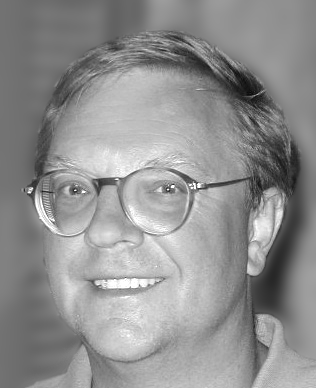 Martin Gogolla is professor for Computer Science at University of Bremen, Germany and is the head of the Database Systems Group. His research interests include software development with object-oriented approaches, formal methods in system design, semantics of languages, and formal specification. Before joining the University of Bremen he worked for the University of Dortmund and the Technical University of Braunschweig. His professional activities include: Publications in journals and conference proceedings; publication of books; speaker to university and industrial colloquia; referee for journals and conferences; organizer of workshops and conferences (e.g., the UML/MODELS conference); member in international and national program committees; contributor to international computer science standards (OCL as part of UML). Martin Gogolla is actively participating in the MODELS conference (as PB Member, PC member, PC chair, SC member, SC chair, Workshop organizer, Educators' and Doctoral Symposium Organizer). He is involved in the organisation of the OCL workhops and the ICMT and TAP conferences. In his group, basic work on the semantics of and the tooling for UML, OCL and other modeling languages has been carried out. The group developes the OCL and UML tool USE (UML-based Specification Environment, available at sourceforge) since about 15 years.
Martin Gogolla is professor for Computer Science at University of Bremen, Germany and is the head of the Database Systems Group. His research interests include software development with object-oriented approaches, formal methods in system design, semantics of languages, and formal specification. Before joining the University of Bremen he worked for the University of Dortmund and the Technical University of Braunschweig. His professional activities include: Publications in journals and conference proceedings; publication of books; speaker to university and industrial colloquia; referee for journals and conferences; organizer of workshops and conferences (e.g., the UML/MODELS conference); member in international and national program committees; contributor to international computer science standards (OCL as part of UML). Martin Gogolla is actively participating in the MODELS conference (as PB Member, PC member, PC chair, SC member, SC chair, Workshop organizer, Educators' and Doctoral Symposium Organizer). He is involved in the organisation of the OCL workhops and the ICMT and TAP conferences. In his group, basic work on the semantics of and the tooling for UML, OCL and other modeling languages has been carried out. The group developes the OCL and UML tool USE (UML-based Specification Environment, available at sourceforge) since about 15 years.
Keynote Subject: Employing the Object Constraint Language in Model-Based Engineering
This keynote speaker is invited at ECMFA 2013.
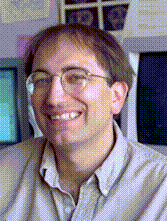 Pat Hanrahan, professor at Stanford University, USA
Pat Hanrahan, professor at Stanford University, USA
Keynote Subject: Co-Specialization of Hardware and Software
This keynote speaker is invited at ECOOP 2013.
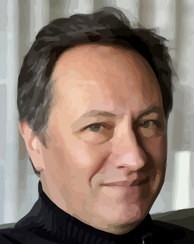 Oscar Nierstrasz, University of Bern, Switzerland, is the winner of the 2013 Dahl-Nygaard Senior Prize for his extensive and diverse contributions to research aimed at making systems more flexible with respect to changing requirements, based on programming languages and mechanisms supporting software evolution as well as tools and environments for reverse engineering and reengineering of complex software systems. On top of this, he also made valuable contributions to the research publication process, e.g., through "Identify the Champion", and to the new generations of researchers through top-level supervision.
Oscar Nierstrasz, University of Bern, Switzerland, is the winner of the 2013 Dahl-Nygaard Senior Prize for his extensive and diverse contributions to research aimed at making systems more flexible with respect to changing requirements, based on programming languages and mechanisms supporting software evolution as well as tools and environments for reverse engineering and reengineering of complex software systems. On top of this, he also made valuable contributions to the research publication process, e.g., through "Identify the Champion", and to the new generations of researchers through top-level supervision.
Oscar Nierstrasz was born in the Netherlands, but grew up in Ontario, Canada. He completed his B.Math at the University of Waterloo in 1979 and his M.Sc. in 1981 and his Ph.D. in 1984 at the University of Toronto, in the area of Office Information Systems. He worked at the FORTH Institute of Computer Science in Crete for one year (1985), and has lived since then in Switzerland. He was a member of the Object Systems Group at the Centre Universitaire d'Informatique of the University of Geneva, Switzerland (1985-1994) before coming to Bern. Prof. Nierstrasz has been active in the international object-oriented research community. He is Editor-in-Chief of the Journal of Object Technology, he has served on the programme committees of the ECOOP, OOPSLA, ESEC and many other conferences, and as the Programme Chair of ECOOP '93, ESEC/FSE '99 and MoDELS '06. He has served several times as president and vice-president of CHOOSE, the subgroup on object-oriented systems and environments of the Swiss Informatics Society. He has also served as Vice-President of AITO.
Keynote Subject: I Object, or How I Learned to Stop Worrying and Love OOP
This keynote speaker is invited at ECOOP 2013.
 Matthew Parkinson, Microsoft Research Cambridge, UK, is the winner of the 2013 Dahl-Nygaard Junior Prize for his work on specifying and reasoning about object-oriented programs. He has introduced the notion of abstract predicates, providing a novel approach to longstanding problems in modular reasoning about object-oriented programs. He also argued that we should depart from the long-established class invariant concept, providing a novel approach which could conceivably impact the way that OO programming is understood in the future.
Matthew Parkinson, Microsoft Research Cambridge, UK, is the winner of the 2013 Dahl-Nygaard Junior Prize for his work on specifying and reasoning about object-oriented programs. He has introduced the notion of abstract predicates, providing a novel approach to longstanding problems in modular reasoning about object-oriented programs. He also argued that we should depart from the long-established class invariant concept, providing a novel approach which could conceivably impact the way that OO programming is understood in the future.
Matthew Parkinson is a Researcher at Microsoft Research Cambridge. He received his PhD degree from the University of Cambridge in UK in 2005, and went on to be a postdoctoral researcher at Middlesex University, and then a Royal Academy of Engineering Research Fellow at the University of Cambridge. He joined Microsoft in 2010. Matthew Parkinson has been a very active researcher in the area of program verification for both concurrent and object oriented programs. He has significantly extended the application domain of separation logic. His recent work has focussed on generalising separation logic with ideas from other concurrent methods such as rely-guarantee.
Keynote Subject: Views on Concurrency Verification
This keynote speaker is invited at ECOOP 2013.
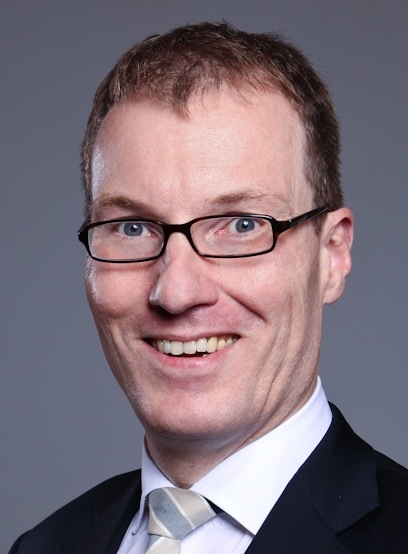 Dierk Steinbach, Cassidian, EADS Deutschland GmbH, Germany.
Dierk Steinbach, Cassidian, EADS Deutschland GmbH, Germany.
I studied physics, computer science and economical mathematics at the University of Ulm (Germany), the Université Claude-Bernard in Lyon (France), the University of New Mexico in Albuquerque (New Mexico, U.S.A.) and the Daimler Research Center in Ulm (Germany). During my studies I focused on complex dynamics. In particular in my diploma thesis I used an information theoretic approach to describe chaotic quantum systems. Then, I received my PhD in physics for my work on electrical transport mechanisms in polycrystalline artificial diamond layers. In addition, I also worked on thermal transport in this material. I achieved an extensive and broad experience in the techniques and tools for modeling and simulation. Since 2000 I have worked for EADS Deutschland GmbH (Cassidian) in different aeronautical projects (BOING NATO AWACS E-3 Midterm Modernization, Airbus A400M Military Mission Management System, EC725 for the Brazilian Navy) on avionic systems in system, equipment and software development. At the same time I have contributed to both the system development processes of the company, as well as the establishment of guidelines for model based system engineering. I have focused on the development of safety critical real time systems, which are subject to civil and military certification regulations. I have taken over an increasing level of responsibility. Since 1st February 2013 I am heading the Avionic Systems Engineering department of Cassidian.
Keynote Subject: A Cassidian® View on Challenges and Chances in Model Based Engineering
This keynote speaker is invited at ECMFA 2013.





